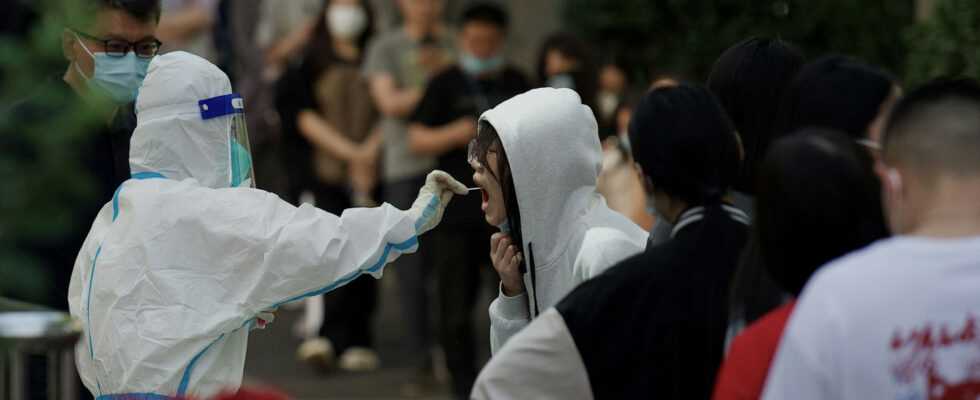Sébastien Le Belzic (in Beijing), edited by Laura Laplaud
In China, the Covid-19 still worries the authorities. But after two months of confinement, Beijing has decided to loosen the noose. Since Sunday, businesses have started to reopen and residents can gradually return to work this week. Same thing in Shanghai, which should return to almost normal life from June 1.
Little by little, China is losing its confines. After two months of confinement, the Chinese capital is slowly reopening the doors of its parks, its shops and from this Monday, its businesses. Beijing wants to regain an almost normal face with the gradual deconfinement of its 23 million inhabitants, but it is not that simple. The queues to be tested remain long since an anti-covid test is compulsory every 48 hours to have access to public places.
The “zero Covid” policy criticized
Shanghai is taking the same path with a gradual reopening from June 1. The end of a long ordeal after more than two months of strict confinement. But for many Chinese, like this mother, nothing is really settled. The city can close at any time. “Why should I be happy? It should be like this all the time, that’s a normal life. Until now the schools are still not open. Students taking exams, how are they going to do it? They haven’t been to class for so long. It’s terrible,” she says.
Schools and universities are still closed and China does not intend to abandon its “zero Covid” strategy, which is increasingly criticized by the population and above all economically costly. But the State, which has no alternative solution, is still struggling to vaccinate its population, especially the elderly and the most vulnerable. Only half of those over 80 have received their three injections.
